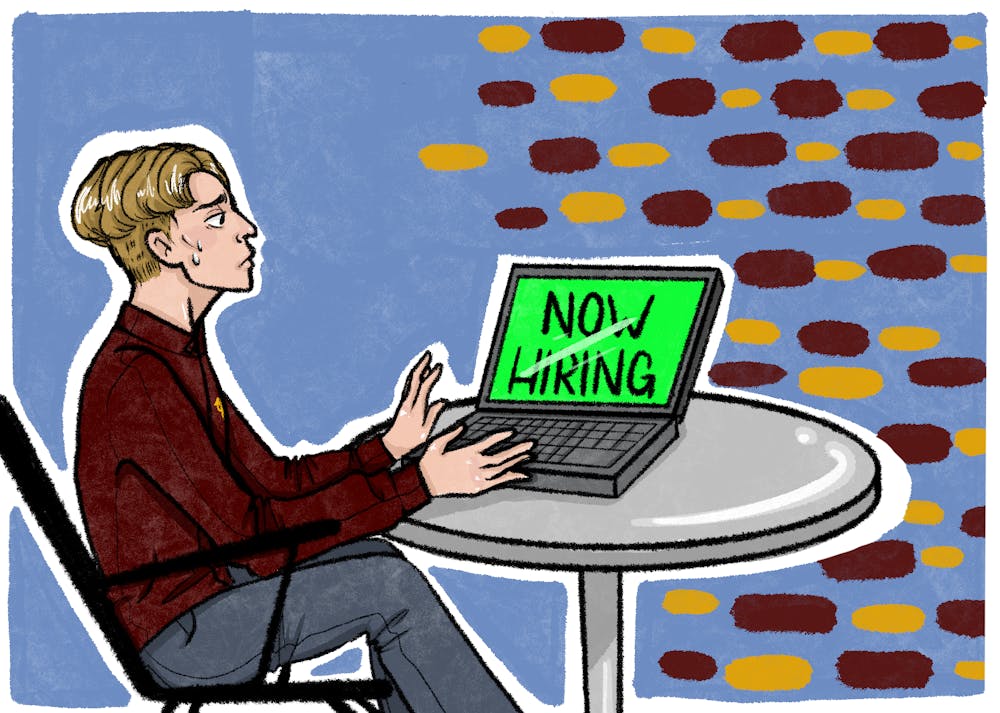Google, Meta and Microsoft recently laid off tens of thousands of workers, unnerving career seeking students and demonstrating tech's jaw-dropping apathy toward its labor force.
Promises of job security drew ASU students like Anthony Delphy, a senior studying computer science, to the tech field. However, mass layoffs jaded his previously rosy perspective.
"The layoffs called into question my choice of major, because there were multiple majors that could've indulged me," he said. "I was originally looking into an animation major, but I felt that computer science was a safer bet. But now it honestly feels like they're about the same in terms of security."
As a graduating student, Delphy worries about increased competition for the shrinking tech job pool, a byproduct of so many layoffs.
"Now there are tens of thousands of other programmers with years of experience ahead of me who've worked at places like Google or Meta or Microsoft," he said, "and I'm supposed to be entering this workforce and compete?"
Andreas Kostøl, an applied economist at the W.P. Carey School of Business, agrees that the post-layoff job market hurts new graduates the most.
"You lose the competition against experienced people because they have these companies on their CV, even if they were laid off," he said. "A couple years in Google makes a difference compared to someone who is coming straight out of college."
As for what drove these tech layoffs, the answer boils down to companies choosing shareholder profits over people, despite the latter being the source of innovation.
"The investors look at this talent and they think that all these clever people will come up with amazing ideas and you hire them," Kostøl said. "Up until the point where investors say 'no, now you need to trim and improve your margins' and then you let them go."
This idea of workers being disposable for big tech companies steered Delphy's preference toward smaller startups.
"It definitely pushes me toward smaller, lesser-known companies, ones that I feel are more close-knit," he said, adding that even having a smaller salary is worth "not feeling like I’m going to be fired at a random moment."
This fear of being "fired at a random moment" will likely turn college talent away from big tech companies, since students like Delphy prefer minimizing risk.
"People are going to look elsewhere and are going to be reluctant about taking these jobs," Kostøl said. "I'm sure it's going to be harder for Google and these companies to hire in the short run."
With their sudden mass layoffs, Google, Meta and Microsoft seem to have forgotten the COVID-19 pandemic's lessons about undervaluing employees.
From desperately raising wages to keep workers loyal during the "great resignation" to cutting them off overnight, tech companies brazenly reveal their true colors: a glaring apathy toward the people that make them great.
Ironically enough, by equating short-term profits with success, tech companies completely miss that hiring and retaining talent, not eating away at it, actually determines their longevity. In the end, this kind of apathy only ends up killing potential long-term profit from ideas generated by a smart, sustainable and sizable workforce.
Right now, students may fear how mass layoffs upended the tech job market. But down the road, mass layoffs may actually end up haunting the companies themselves.
Edited By Kate Duffy, Reagan Priest and Anusha Natarajan.
Reach the columnist at mosmonbe@asu.edu and follow @miaosmonbekov on Twitter.
Editor's note: The opinions presented in this column are the author's and do not imply any endorsement from The State Press or its editors.
Want to join the conversation? Send an email to opiniondesk.statepress@gmail.com. Keep letters under 500 words and be sure to include your university affiliation. Anonymity will not be granted.
Like The State Press on Facebook and follow @statepress on Twitter.
Mia Osmonbekov is a senior reporter. She previously reported for Arizona Capitol Times, Cronkite News DC, La Voz del Interior and PolitiFact. She is in her 7th semester with The State Press working previously as the opinion editor and assignment editor.




